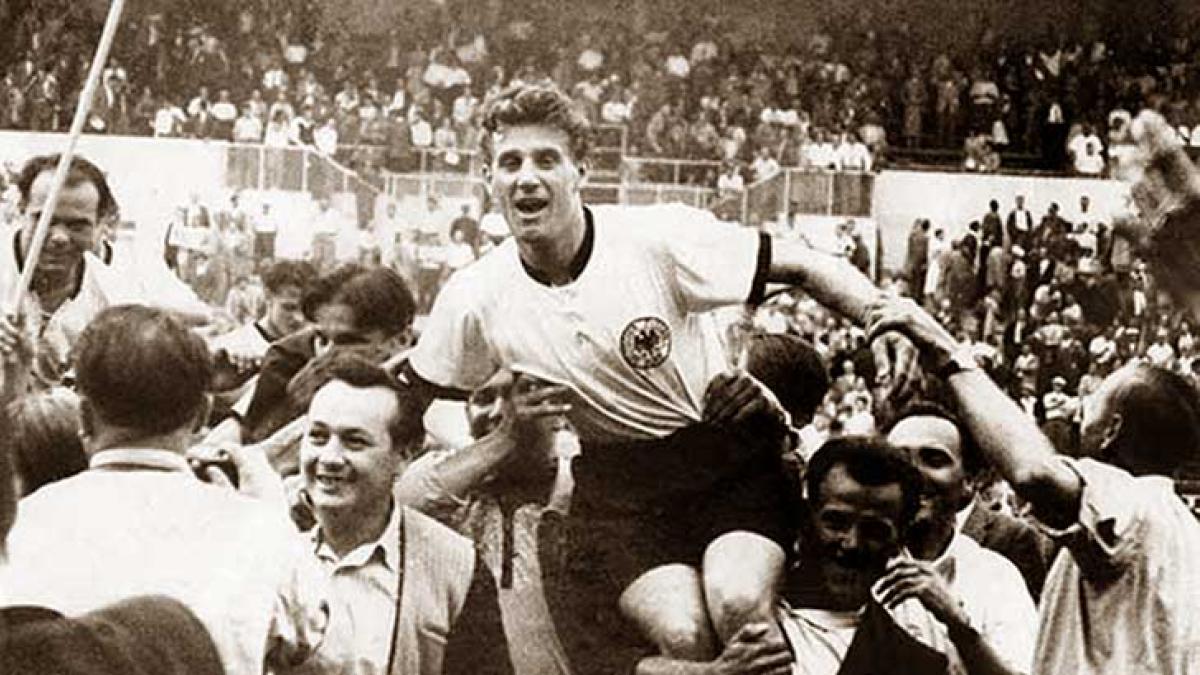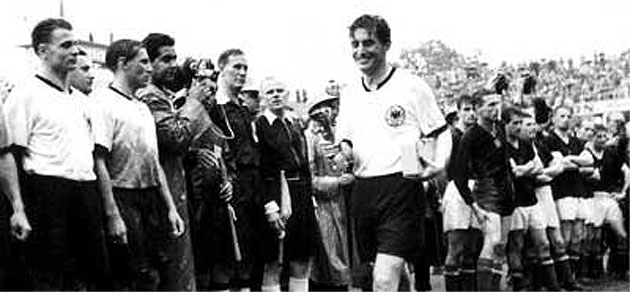The Miracle of Bern: The Story of the 1954 World Cup
In 1954, after the horrors of World War II, Germany was struggling to heal its wounds and find a new identity. In this context, the German soccer team starred in an extraordinary chapter in sports history known as "The Miracle of Bern." The FIFA World Cup became the stage where a seemingly underdog team became champions, weaving a tale of resilience, determination and redemption.
The tournament began with doubts about West Germany, but as it progressed, the magic began to materialize. Facing Hungary in the group stage, West Germany suffered an 8-3 defeat, adding to doubts over their prospects in the tournament. However, the knockout stage brought about an astonishing transformation.
The quarterfinal showdown against Austria marked the beginning of the resurrection. In a thrilling duel, West Germany emerged victorious 6-1, sending a clear message to the rest of the world: their spirit and determination could not be underestimated. The feat was particularly significant because Austria, aligned with the German team, shared not only the language but also recent history.
In the semifinals, the team faced the surprising Türkiye. Despite many anticipating a close match, West Germany won 7-2, cementing their place in the final. The road to glory was paved, but the true test was yet to come.

The 1954 World Cup final took place in Bern, Switzerland on July 4. West Germany faced Hungary again, the team that had crushed them in the group stage. History seemed destined to repeat itself when Hungary took a 2-0 lead in the first eight minutes of the match. But then, the miracle happened.
The Germans quickly showed that they were determined to change the course of the game. Max Morlock and Helmut Rahn scored to level the score, bringing hope to the hearts of German fans. The tie not only reflected a remarkable comeback, but also marked a change in the momentum of the game.
With the score 2-2, the match was at a stalemate. Then, in the 84th minute, Helmut Rahn became the unexpected hero. With a precise shot, he beat the Hungarian goalkeeper to put West Germany ahead. Emotion took over the team and the fans. Rahn had sealed the miracle, and the German team won 3-2.
West Germany's victory in the 1954 World Cup was more than a sporting triumph. It was a symbol of the ability of a war-torn country to overcome adversity and be reborn. Football became a metaphor for German resilience, providing a ray of hope at a time when the nation sought to heal and find its place in the world.

The players, many of whom lived through the horrors of war, became national heroes. Captain Fritz Walter, who had been a prisoner of war in the Soviet Union, led the team with courage and determination. Coach Sepp Herberger, often underrated, united the team and led it to glory.
The Miracle of Bern transcended the borders of football and became an event that united the nation. West Germany found a new narrative, one of improvement and hope. The 1954 team not only won the World Cup; wrote an inspiring chapter in the history of sport and contributed to the reconstruction of the German spirit. The Miracle of Bern continues to be remembered as an iconic moment that showed that, even in the darkest of times, the light of hope can shine brightly through sport.
